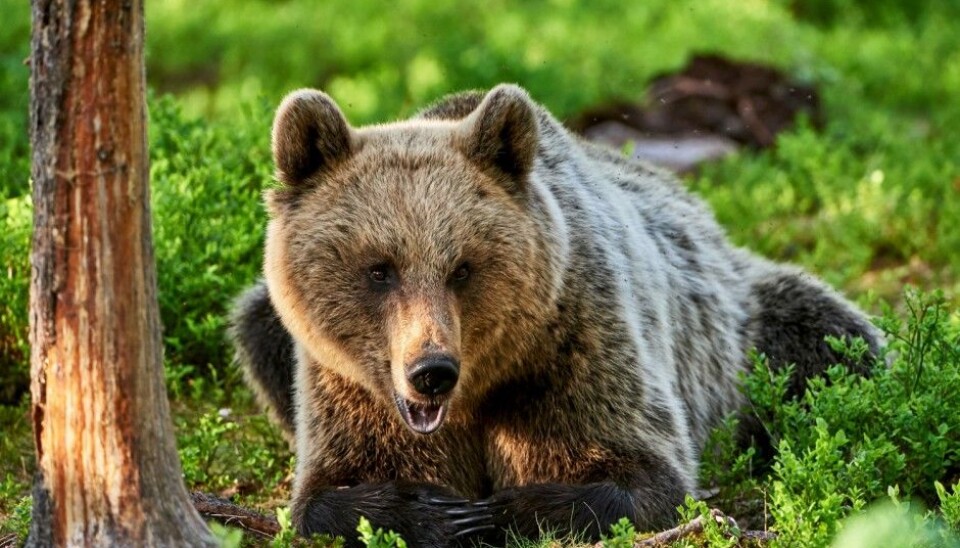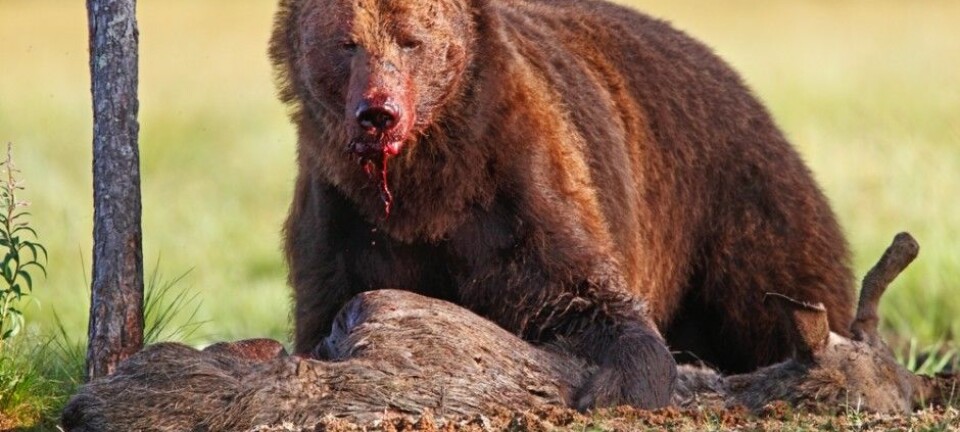An article from Norwegian University of Life Sciences (NMBU)

Bears skip breakfast to avoid hunters
New research shows that human hunting makes bears change their eating patterns.
“Bears alter their behavior and movements to avoid humans during the hunting season,” says PhD student Anne Gabriela Hertel from the Norwegian University of Life Sciences (NMBU).
She has spent the past three years researching what Scandinavian brown bears eat, and how their foraging behavior is influenced by hunting.
Berry hunting in the forest
Bears are omnivores that eat both plants and animals. During autumn, their diet consists almost exclusively of forest berries like blueberry and lingonberry. In fact, bears depend so heavily on berries during this period that female bears and their cubs are fatter in years when there are many blueberries. However, eating these berries does not come risk-free.
“Such berries are most often found in open forests and clear-cuts where bears are easily spotted by hunters”, Hertel says.
Bears also prefer to look for berries during the day, when they are easier to see. Thus, the risk for getting hunted increases.
Avoiding certain areas
Using GPS-senders and information from bear hunters, Hertel has looked at how the bears move across the landscape, where they feed and when they do so.
“I found that bears avoid good berry locations if they coincide with a high mortality risk,” Hertel says.
“They eat less during the hunting season, and when they do eat, they select locations with fewer berries during the period of highest risk.”
The highest risk period during the hunting season is in the morning and Hertel found that at these times, bears postpone their feeding until later during the day.
Humans are changing the bear population
Hertel also found that bears generally avoid good berry locations if they are also considered high-risk areas. The bears that do not avoid them have a higher chance of being shot.
“This is a clear indication that the bear population is influenced by hunting, and that because of this, it may change over time”, she says.
This may affect the number of cubs. Food intake dictates not only bear size, but also offspring production. Females in good condition are more likely to produce cubs, and cubs of good
conditioned females have a higher survival rate than those of females in poor condition.
“Managers may want to postpone the hunting season till after the peak of the berry season, or restrict the time of day when bear hunting is allowed to minimize the adverse effects on food intake,” Hertel concludes.
Scientific links
- Hertel, A.G.: Temporal effects of hunting on foraging behavior of an apex predator: Do bears forego foraging when risk is high? Oecologia (2016)
- Hertel, A.G. et.al: Berry production drives bottom–up effects on body mass and reproductive success in an omnivore. OIKOS Synthesising Ecology. (2017)
































